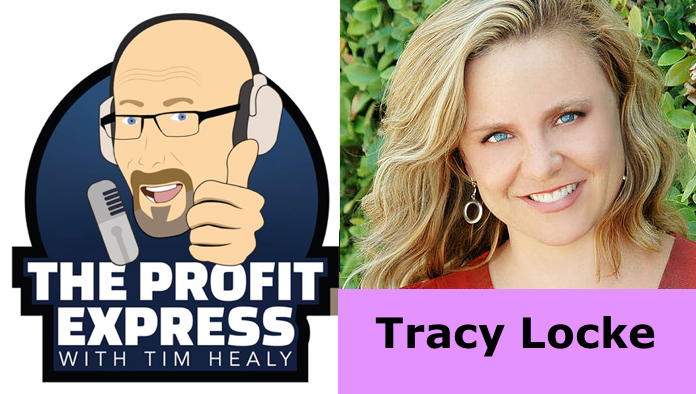
by Tim Healy
Communication Training with Tracy Locke
Podcast: Play in new window | Download
Subscribe: Apple Podcasts | Google Podcasts | Spotify | Amazon Music | Deezer | RSS
Do you struggle to communicate effectively? You’re not alone. Whether in a personal or professional setting, being able to speak with and listen to others sets the stage for your relationships. When it comes to communication training, how can you learn to be better? The answer may surprise you: improv comedy!
My guest today is comedienne Tracy Locke, the professional warm up comedienne for the Mel Robbins show. Tracy is the co-owner of Productively Funny, a company that incorporates improv comedy into corporate training workshops. They use humor to help businesses improve communication skills of their staff.
If you missed part 1 of my interview with Tracy, you can download it here.
Talking Over One Another
One of the most frequent complaints that people have in communication is that we all seem to be speaking over each other. As Tracy discusses at 3:05, the key to communicating is listening rather than speaking. You cannot speak on a topic if you aren’t paying attention to one another. Instead of checking your phone, you must give someone your undivided attention in business and personal relations.
A key part of communication training is teaching people to not just wait for their turn to talk. Listening is vital to work together.
The Future of Communication
Unfortunately, our reliance on technology as a form of communication likely will not change. At 5:00, Tracy explains how technology is a tool that should help your ability to communicate, but it has actually taken over. We no longer speak with each other – we are always on our phones. If you don’t listen to another person, how can you expect to add to a conversation?
Are You Present in the Moment?
Improv teaches participants to always be present in the moment. This lesson is vital for countless phases of business and life.
Listen at 7:15 where Tracy discusses how important it is to always be in the moment. Whether you are speaking to one person or performing in front of a large crowd, people can always tell if you’re paying attention. There is something in human contact that can identify if someone is fully engaged with you. Without this engagement, it is impossible to build trust and an open and honest relationship.
The Importance of Listening
Can someone become a better listener? At 11:35, Tracy explains that it is possible, as long as the person understands the reason why listening is so important. During communication training, individuals are put into someone else’s shoes. It’s only when they see what another person experiences that they understand how their actions can have certain effects. This understanding lets the trainee see the value in becoming a better listener.
Being Vulnerable and Authentic
What is the key to communication? Listen at 19:30 where Tracy discusses the importance of being vulnerable and authentic. People innately know when you are being truthful, and they find comfort in someone who is actually trying to help them. Whether you are trying to close a sale or you are attempting to improve a relationship with a friend, being vulnerable and authentic will get you further.
Resistance to Change
Millennials get a bad rap in the media. As Tracy explains at 23:15, the criticisms are often undeserved. She says that when it comes to communication training, millennials are less open to change than their baby boomer counterparts are. However, once you break down the barrier and show younger workers that they don’t look “weird” in training, they are more open to change. Once they’re in training, they’re totally into it.
If you liked my interview with Tracy, you can download more episodes of The Profit Express to help you on the road to success.

by Tim Healy
Selling to Millennials
Selling to Millennials
Selling to Millennials can make you a better sales person. There I said it. And I want you to read it as the compliment it is intended to be. It is a generation that has often been maligned by Boomers and Gen X. I have to confess to some of that criticism myself.
I think every generation thinks they are better than the generations that follow. That plus a lack of understanding can attribute to cross-generational jabs. Now as a sales trainer and coach many of my clients are Boomers and Gen Xers. These same Boomers and Gen Xers are now encountering more and more Millennials in the workforce and as customers. According to the Pew Research Center, Millennials became the largest generation in the US Labor Force in 2016.
